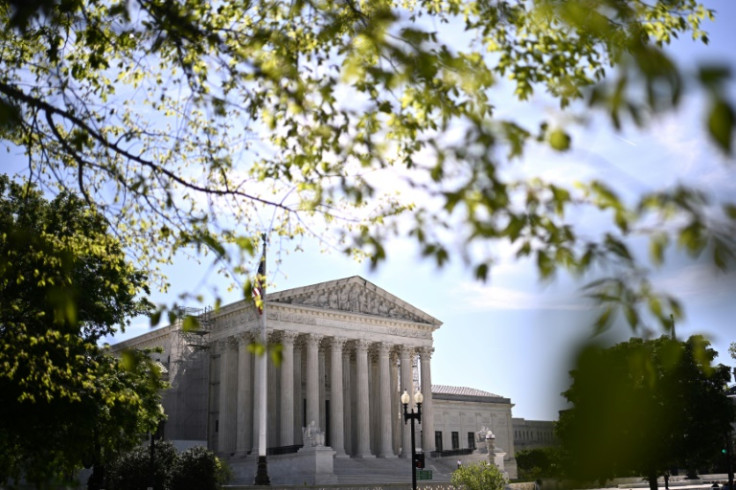US Supreme Court To Hear High-stakes Case On Idaho Abortion Ban

The US Supreme Court was set to hear a crucial case Wednesday weighing whether Idaho's near-total ban on abortion violates federal law requiring hospitals to stabilize patients needing emergency care.
It comes nearly two years after the conservative-majority bench overturned the national right to terminate a pregnancy, making reproductive rights a pivotal issue that could shape the outcome of the November presidential election.
The ruling in the Idaho case could have sweeping consequences for hospitals across the country.
Dozens of women's rights activists gathered in front of the court before oral arguments began, some draped in red-stained sheets symbolizing blood. Anti-abortion activists also arrived, chanting slogans.
Idaho has some of the strictest anti-abortion laws in the United States, allowing the procedure only if a pregnant mother is at imminent risk of death.
The Biden administration sued Idaho arguing that its law conflicts with a federal law that requires hospitals that receive government Medicare funding to provide emergency room care, including abortion, in situations that are serious but not necessarily life-threatening.
"Beyond care necessary to prevent death, the law provides no defense whatsoever when the health of the pregnant patient is at stake," the Justice Department said.
A federal judge in Boise, the Idaho capital, issued a preliminary injunction in August 2022 blocking the state law on the grounds it put doctors in a difficult position.
But in January the Supreme Court put the Idaho ban back in place while it took up the matter.
The Supreme Court ruling overturning the constitutional right in June 2022 to abortion left states free to create their own laws around the procedure.
A Texas woman was recently forced to leave the state for an emergency abortion after being prevented from terminating her potentially life-threatening pregnancy.
Texas physicians found guilty of providing abortions face up to 99 years in prison, fines of up to $100,000 and the revocation of their medical license.
Under Idaho's "Defense of Life Act" someone who carries out an abortion may be jailed for five years.
In a recent statement, President Joe Biden said that the court's overturning of the federal right to abortion last year "has enabled Republican elected officials to pursue dangerous abortion bans like this one that continue to jeopardize women's health, force them to travel out of state for care, and make it harder for doctors to provide care."
© Copyright AFP 2024. All rights reserved.











